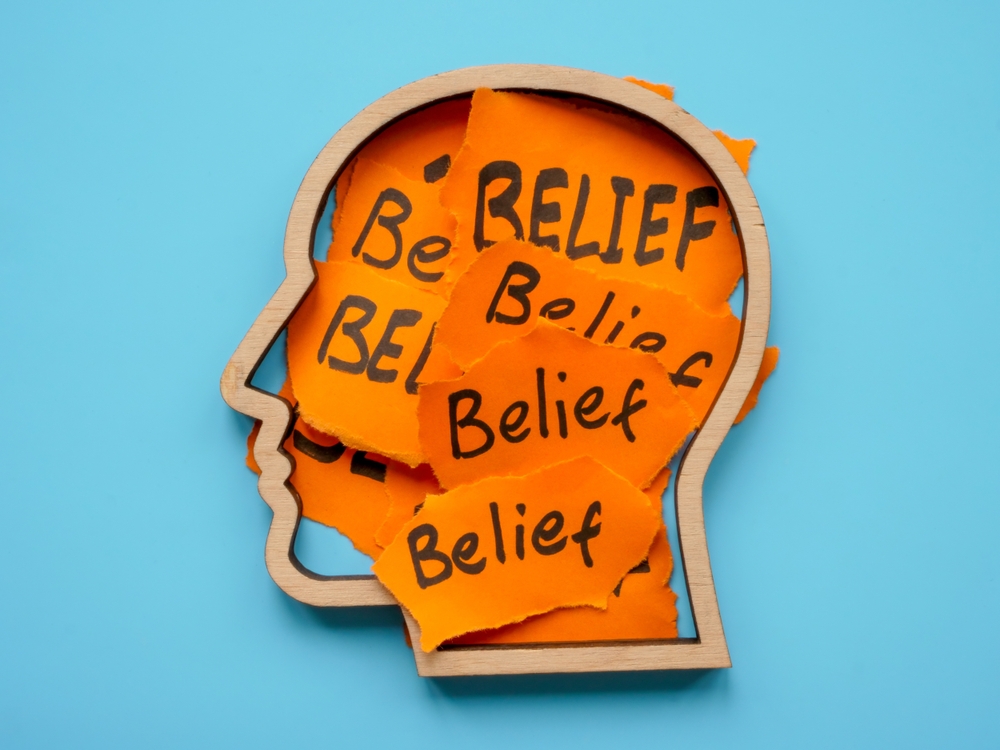

Refugees and asylum seekers are more vulnerable to mental health disorders and psychological symptoms after exposure to forced displacement, war, persecution and trauma.
However, the cognitive mechanism underlying the development of mental illness among refugees remains poorly understood, hindering the development of cognitive interventions for this population.
What do we already know?
Interpersonal trauma
- Interpersonal trauma is common among refugees and can lead to negative beliefs about others
- Negative beliefs about others have been found to be associated with worse symptoms of PTSD and depression
- Higher benevolence beliefs about people result in better social engagement.
Self-efficacy
- Self-efficacy refers to a person's belief in their ability to perform a task.
- Some preliminary evidence has shown that increased self-efficacy is associated with better psychological outcomes
- Interventions aimed at increasing self-efficacy may be associated with fewer psychological symptoms among refugees.
What do we want to learn?
Understanding the relationship between beliefs about self and others and psychological outcomes in refugees is important. Findings from previous cross-sectional studies examining the relationship between beliefs about self and others and psychological outcomes may be problematic because outcomes may be prior to exposure, so it may not allow for effects to be observed over time. In addition, the results measured by previous studies may be limited because most of them focus only on psychological symptoms, and the influence of beliefs can be predicted not only psychologically, but also socially.

What is the long-term relationship between trauma exposure, beliefs about self and others, and social and psychological outcomes in refugee communities?
Methods
To gain valuable insight into the lives of refugees and asylum seekers, this study used a longitudinal design that allowed researchers to follow participants over a long period of time.
Participants were a diverse sample of 1,079 individuals Farsi, Tamil or English speaking refugees or asylum seekers Australia. The researchers chose to study these languages because they represented half of the successful refugee status applications in Australia between 2012 and 2015. Participants were recruited through social media platforms, advertisements displayed on refugee support services, and by requesting contact information from potential family and friends of the participants. be interested in participating.
The following outcomes were measured in questionnaires/scales: PTSD symptoms, Depressive symptoms, Self-efficacy, Beliefs about trusting and being with others in society, Traumatic events, Common stressors in refugees, Anger feelings and Social participation levels. To ensure the cultural compatibility of the questionnaires, the researchers translated them into Arabic, Persian, and Tamil, and then translated them into the original language to compare any discrepancies. They then pilot-tested the questionnaires among the refugee population to ensure that the measures were culturally appropriate.
Data collection was conducted at two time points: First, from April 2015 to January 2018, and then 6 months later. Interestingly, 1,007 of the original 1,079 participated at time point 2, allowing for a large pool of data for analysis. Participants were sent either an online questionnaire or a paper version by mail if they did not have access to the Internet, which allowed for inclusion.
Results
Exposure to potentially traumatic events (PTE)
- Self-efficacy and negatively correlated with positive beliefs about others
- The higher the PTEs at Time 1, the lower the self-efficacy and positive beliefs about others at Time 2 (6 months later).
Self-efficacy
- Higher self-efficacy at point 1 was associated with lower depression and anger at point 2
- Higher self-efficacy at Time 1 was associated with increased positive beliefs about others.
Positive beliefs about others
- More positive beliefs about others at Time 1 are associated with higher self-efficacy at Time 2.
- More positive beliefs about others at Time 1 were associated with higher depression at Time 2.
Psychological symptoms and social connectedness
- Greater PTSD symptoms at time point 1 were associated with lower self-efficacy at time point 2
- Greater depression at point 1 was associated with higher positive beliefs about others at point 2
- Low anger at Time 1 was associated with high positive beliefs about others at Time 2
- Greater social connectedness at Time 1 predicted higher positive beliefs about others at Time 2.

Greater exposure to traumatic events was associated with lower self-efficacy and lower positive beliefs about others.
Results
This is the first study to longitudinally examine the relationship between beliefs about self and others and key psychological and social outcomes for refugees.. Cognitive variables are important for the maintenance of psychological symptoms over time. Targeted cognitive interventions promote positive post-traumatic mental health by supporting displaced, persecuted or conflict-affected populations.

Cognitive mechanisms significantly influence the maintenance of psychological outcomes in IDPs.
Strengths and limitations
This study presents certain limitations. The results may not be generalizable to wider refugee communities, as this sample is over-representative of highly educated refugee participants. In reality, the vast majority of refugees seeking asylum in the UK and other Western countries do not have tertiary education and are often prevented from pursuing further education during the asylum process. at school. As most of the constructs in the study were drawn from a Westernized context, there are additional concerns about the cross-cultural validity of the findings. Dichotomous items in a questionnaire about beliefs of others may limit participants' ability to accurately assess the outcome and affect its validity. It is also important to note that questionnaires and standardized measures often do not reflect the ethno-cultural experience of refugee communities from the Global South.
Future research addressing the temporal relationship between complex PTSD and self- and other-related cognitive appraisals could be conducted qualitatively to better capture the psychological underlying processes of complex PTSD and guide the development of interventions.

The sample may not have been representative of the wider refugee population or those with lower levels of education.
Implications for practice
The findings can inform the approach taken by frontline clinicians working with refugee and asylum-seeking communities in both the assessment and treatment phases. At the point of entry to mental health services, clinicians can explore and identify the cognitive processes of service users through semi-structured interviews. Given the finding that refugees who are more exposed to traumatic events may not have positive views of others, it may inform ways for clinicians to approach the therapeutic relationship and relationship.
Psychological assessments, if done well, can bridge trust between the service user and the clinician and allow for a mutual decision as to which line of psychological intervention would be most beneficial.
In treatment, clinicians can work integratively and use various psychological models without neglecting the importance of targeting cognitive beliefs and supporting people to deconstruct negative thoughts about themselves and others, while anchoring positive events and promoting posttraumatic growth.

Clinicians working with refugees can help them deconstruct and challenge unhelpful negative beliefs about self and others to promote resilience and healing.
Statement of interest
There are no conflicts of interest to declare.
Contributors
owing to UCL Mental Health MSc Students writing this blog from Rowe A student group: Demetra Christodoulou, Owen Ho Hin Chu, Dimitris Santorinaios, Zhixing Yang, Sheila Greenan, Clover Zhang and Rameezah Asad.
UCL MSc in Mental Health Studies
This blog is written by a group of students MSc in Clinical Mental Health Sciences at University College London. A full list of UCL MSc student blogs can be found hereand you can follow the Mental Health Studies MSc team Twitter.
We regularly publish blogs written by individual students or groups of students studying at universities that subscribe to the National Elf Service. Contact us if you want to learn more about how this can work for your university.
Connections
Primary paper
Nickerson, A., Byrow, Y., O'Donnell, M., Bryant, RA, Mau, V., McMahon, T., & Liddell, BJ (2022). Cognitive mechanisms underlying the relationship between trauma exposure, mental health, and social participation in refugees: A longitudinal study. Journal of Affective Disorders307, 20-28. https://doi.org/10.1016/j.jad.2022.03.057
